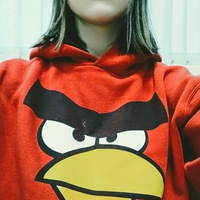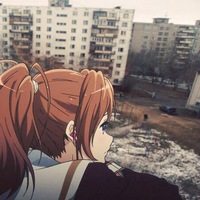
Вопрос задан 19.06.2023 в 01:22.
Предмет История.
Спрашивает Руднева Анастасия.
объяснения - монархия - князь - дань - купец (гость) - дружина - волоки - полюдье - уроки - погосты
СРОЧНО! 0
0
 0
0
Ответы на вопрос
 Внимание! Ответы на вопросы дают живые люди. Они могут содержать ошибочную информацию, заблуждения, а также ответы могут быть сгенерированы нейросетями. Будьте внимательны. Если вы уверены, что ответ неверный, нажмите кнопку "Пожаловаться" под ответом.
Внимание! Ответы на вопросы дают живые люди. Они могут содержать ошибочную информацию, заблуждения, а также ответы могут быть сгенерированы нейросетями. Будьте внимательны. Если вы уверены, что ответ неверный, нажмите кнопку "Пожаловаться" под ответом.

Отвечает Партолина Виктория.
Князь - правитель княжества; Дружина - отборное войско на службе у князя; Полюдье - это процесс сбора налогов; Урок - фиксированный размер дани/налога; Погост - место сбора дани; Гости - купцы с большим авторитетом; Волоки - это отрезок, что делит реку в ее истоке.
 0
0
 0
0

Отвечает нейросеть ChatGpt. Будьте внимательны, ответы нейросети могут содержать ошибочные или выдуманные данные.
Monarchy:
Monarchy is a form of government where a single individual, usually referred to as a monarch, holds supreme authority and power. The monarch is typically a hereditary ruler, meaning that their position is passed down within a specific family or dynasty. Monarchies can vary in their level of power and authority, ranging from absolute monarchies, where the monarch has unlimited power, to constitutional monarchies, where the monarch's powers are limited by a constitution or other governing documents.Knyaz:
In the context of Eastern Europe, a knyaz (also spelled kniaz or knez) was a title used for a ruler or nobleman. The term originated in the medieval period and was commonly used in Slavic countries such as Russia, Ukraine, and Belarus. Knyazes were often regional rulers or princes who held significant power and authority over their territories. The title of knyaz was typically hereditary, passing from one generation to the next within a noble family.Dan':
Dan' is a term used in historical contexts to refer to a form of tribute or tax that was paid by subjects to their rulers. It was a common practice in feudal societies, where the ruler or monarch would demand a portion of the wealth or resources produced by their subjects as a form of payment or tribute. The dan' could take various forms, such as agricultural produce, livestock, or monetary payments. It was often used to support the ruler's court, military, or other expenses.Kupets (Guest):
The term "kupets" refers to a merchant or trader in Russian. In historical contexts, kupets were individuals who engaged in commercial activities, buying and selling goods for profit. They played an important role in the economy of medieval Russia, facilitating trade and commerce between different regions. Kupets often traveled long distances to acquire goods and then sold them in local markets or to other merchants. They were an integral part of the urban and commercial life of medieval Russia.Druzhina:
Druzhina was a term used in medieval Russia to refer to a retinue or group of warriors who served a prince or nobleman. The members of the druzhina were typically loyal followers and fighters who provided military support and protection to their lord. They played a crucial role in the political and military affairs of medieval Russia, serving as the prince's personal guard and participating in battles and campaigns. The druzhina was often composed of trusted warriors, relatives, and close associates of the prince.Voloki:
Voloki is a term that refers to a type of tax or tribute paid by peasants in medieval Russia. It was a form of labor obligation where peasants were required to provide unpaid labor or services to their lord or the state. The voloki could involve various tasks, such as working on the lord's land, maintaining roads, or providing other forms of manual labor. It was a common practice in feudal societies, where peasants were bound to the land and obligated to provide labor or other services to their lord in exchange for protection and the right to cultivate the land.Polyud'ye:
Polyud'ye is a term used in medieval Russia to refer to a system of military service and obligations. It was a form of military duty where free men were required to serve in the army or provide military support to their lord or the state. The polyud'ye system played a crucial role in the defense and security of medieval Russia, ensuring that the ruling class had access to a trained and organized military force. It was often based on the principle of reciprocal obligations, where the lord provided protection and support to the peasants in exchange for their military service.Uroki:
In the context of your query, "uroki" could refer to "lessons" in Russian. If you are referring to lessons in a general sense, it could mean educational lessons or classes. However, without further context, it is difficult to provide a more specific explanation.Pogosty:
Pogosty were early Slavic settlements or villages in medieval Russia. They were typically located near rivers or important trade routes and served as centers of economic and social activity. Pogosty often had a church or a religious center, which played a significant role in the life of the community. Over time, some pogosty developed into larger towns or cities, while others remained small rural settlements. The term "pogost" is still used in some regions of Russia to refer to a rural settlement or a church parish.I hope this information helps! Let me know if you have any further questions.
 0
0
 0
0
Похожие вопросы
Топ вопросов за вчера в категории История
Последние заданные вопросы в категории История
Предметы
-
Математика
-
Литература
-
Алгебра
-
Русский язык
-
Геометрия
-
Английский язык
-
Химия
-
Физика
-
Биология
-
Другие предметы
-
История
-
Обществознание
-
Окружающий мир
-
География
-
Українська мова
-
Информатика
-
Українська література
-
Қазақ тiлi
-
Экономика
-
Музыка
-
Право
-
Беларуская мова
-
Французский язык
-
Немецкий язык
-
МХК
-
ОБЖ
-
Психология
-
Физкультура и спорт
-
Астрономия
-
Кыргыз тили
-
Оʻzbek tili



























